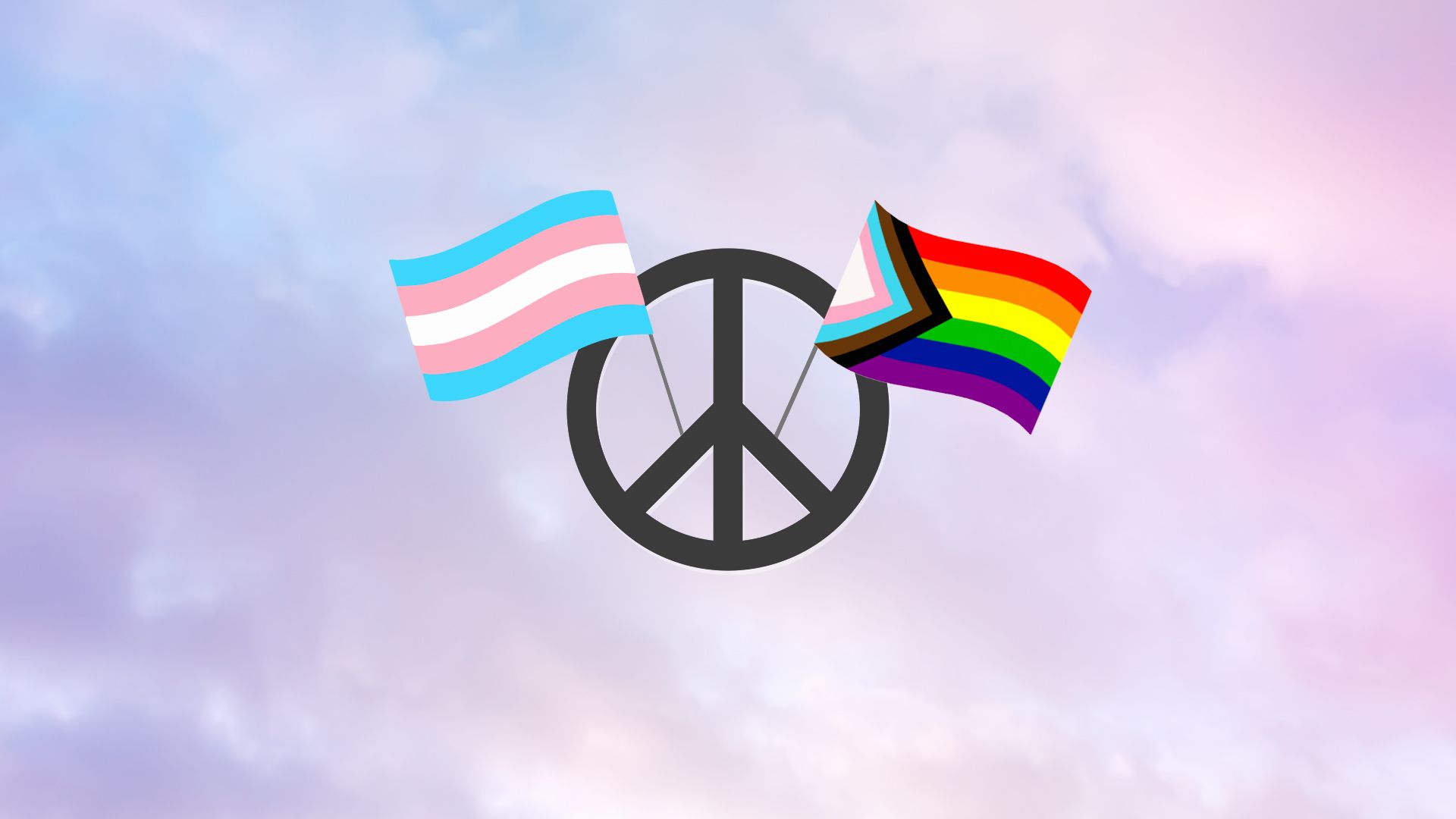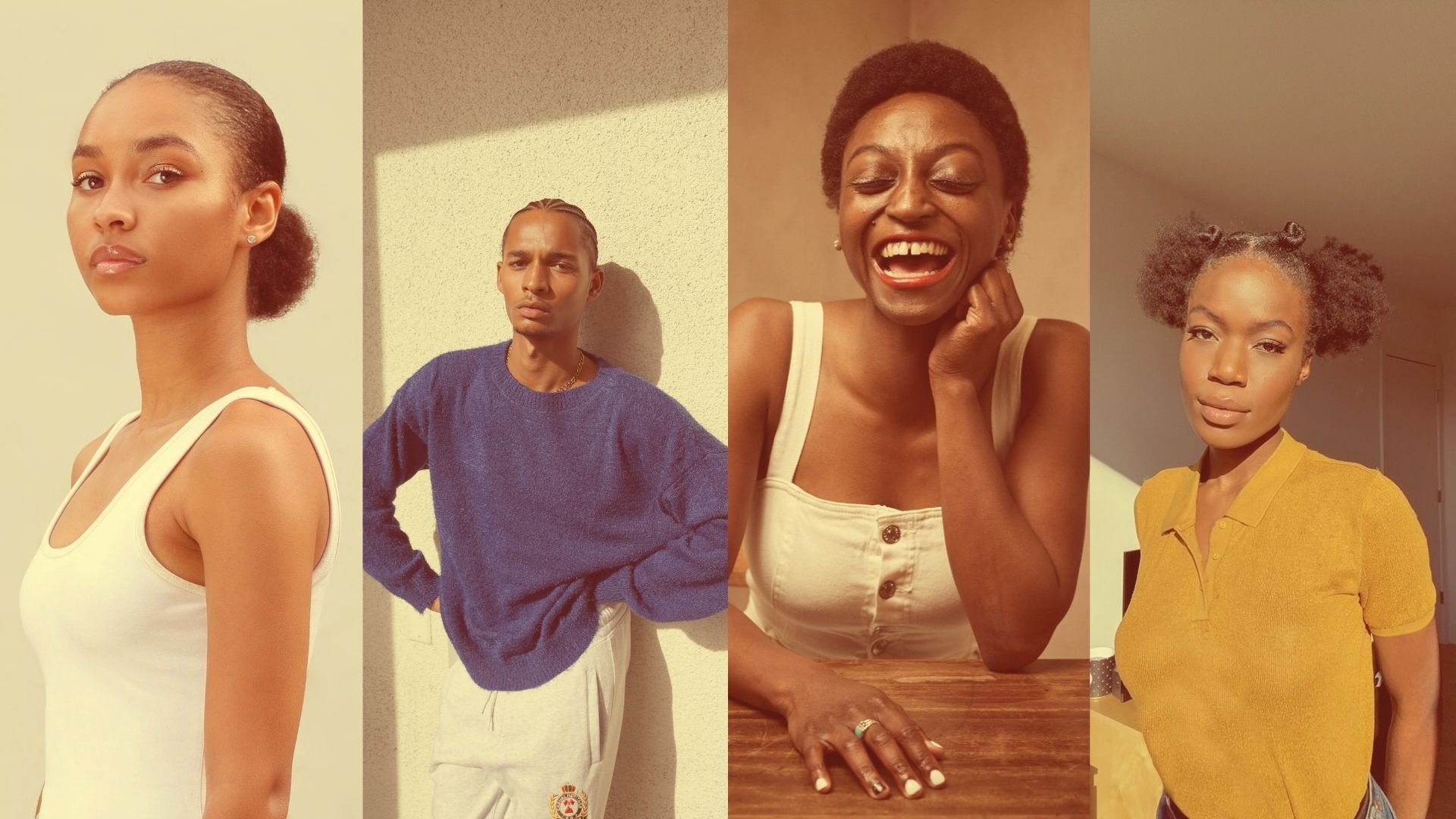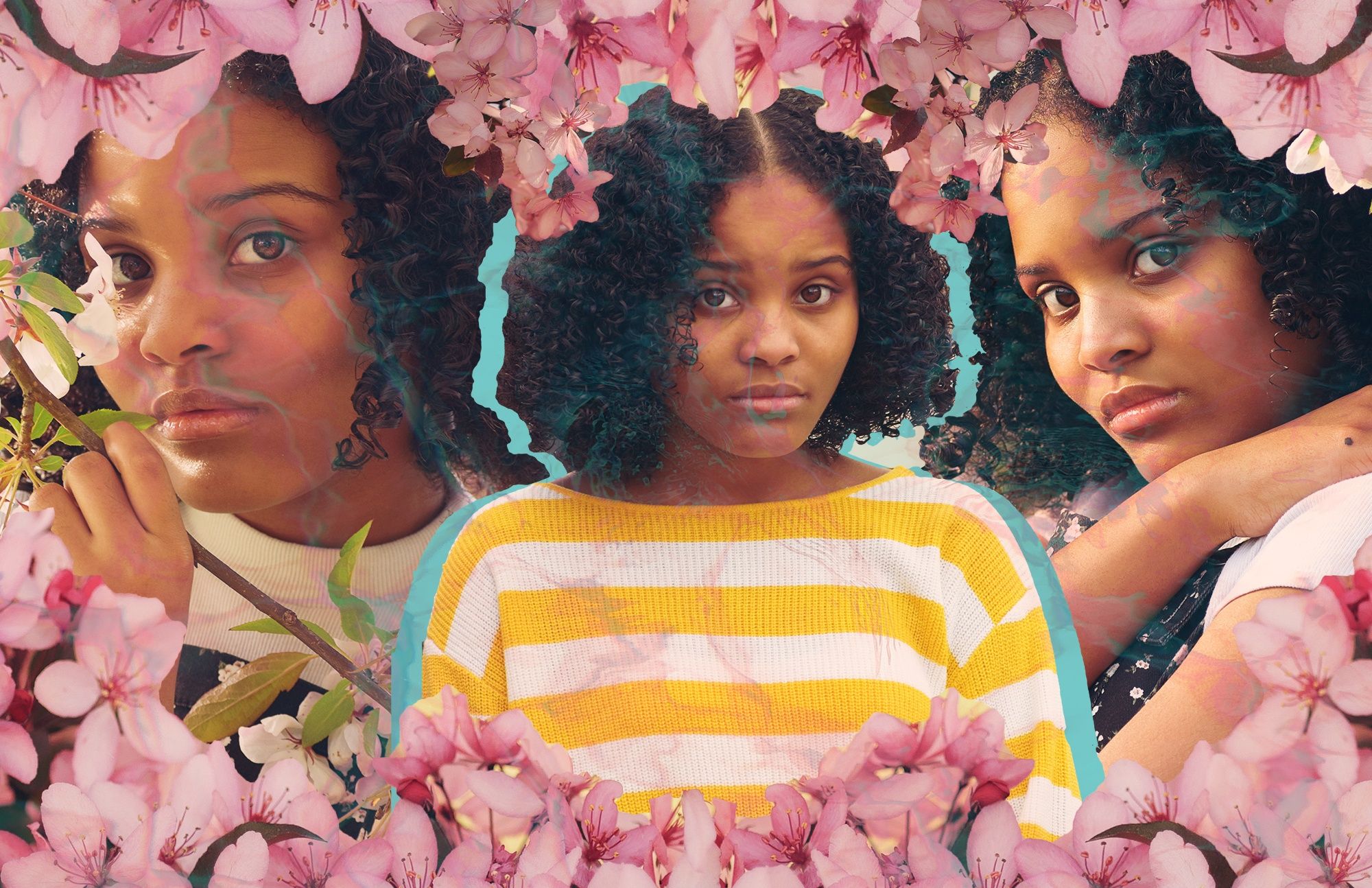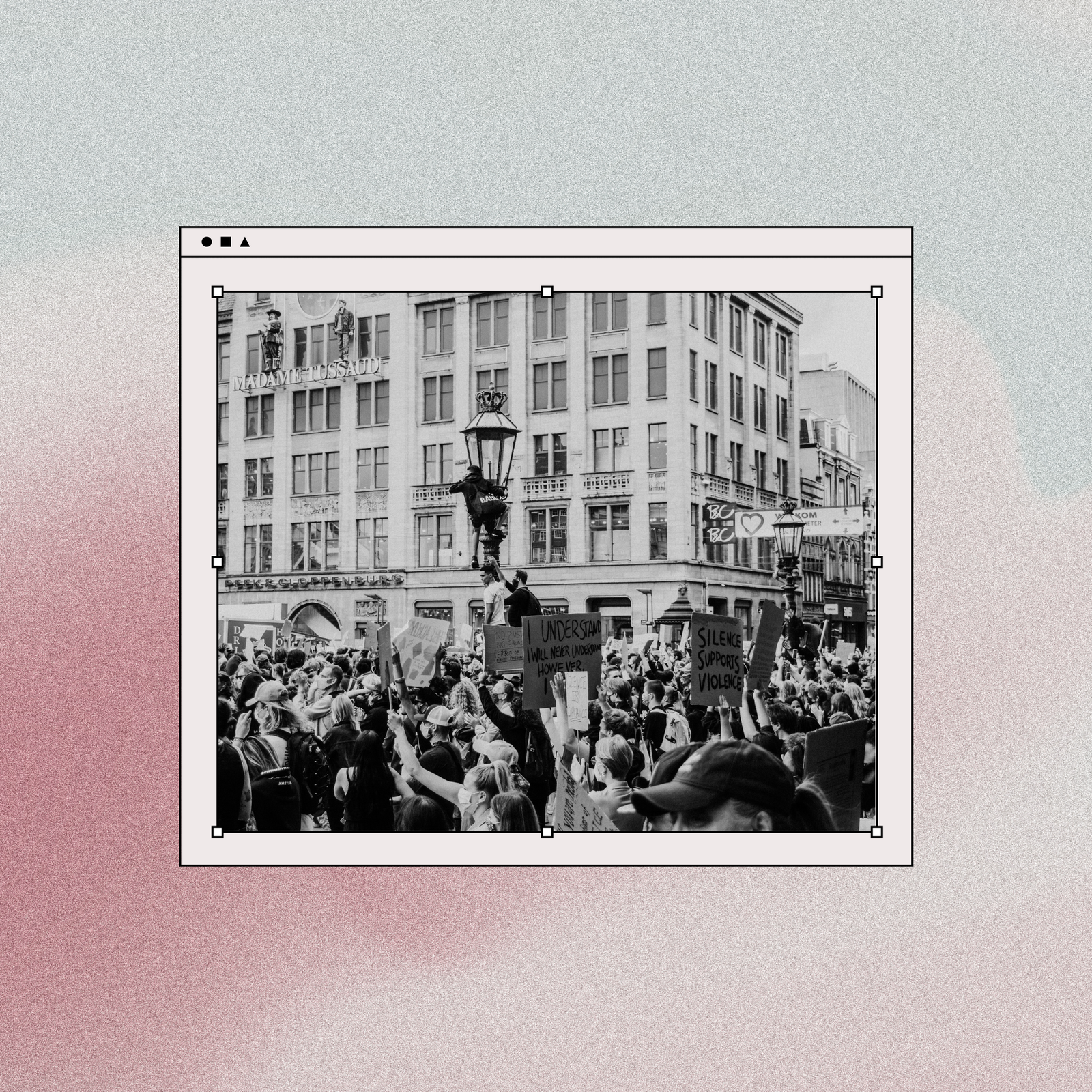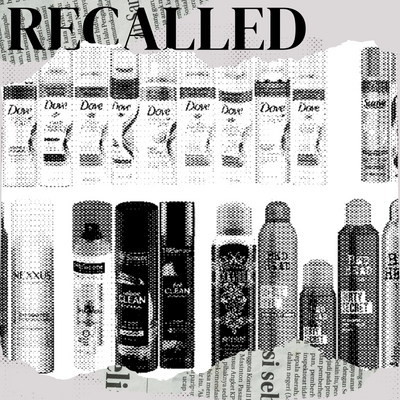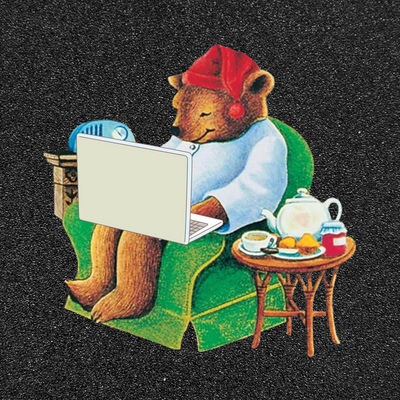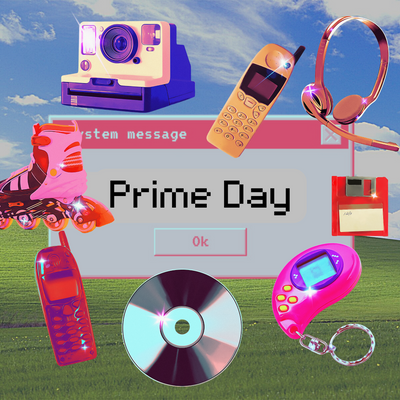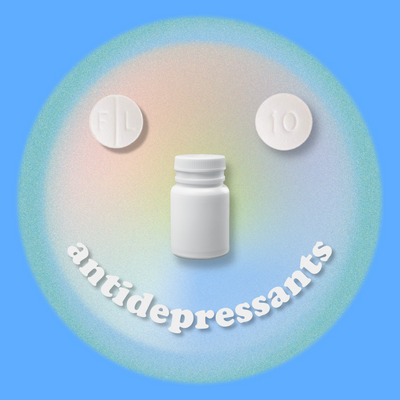Pride month is both a celebration and acknowledgment of everything our elders fought and continue fighting for. Recognizing the impact of their actions is essential for future generations to continue pushing culture forward. The act of nurturing a world that is better for our youth is something that we can all take pride in.
In our current day and age, activism is growing more accessible and expansive. Everyone is operating in a landscape where social media is an essential medium to amplify their messages, which creates an environment where activism within queer and BIPOC communities is adopted from the moment we realize that the world has politicized our beauty and existence. I had the honor of speaking to four Gen Z youths from around the world about the relationship between activism and our generation. Thank you to everyone who contributed.
Catherine Liao (they/them)
Manila, Philippines
[Editor's note: Catherine asked to have their photo omitted. I obliged!]
“Activism has become a cornerstone of the Gen Z identity.”
“Most of us grew up witnessing the fight for LGBTQIA+ rights, the struggle for racial equality, and the rise of the #MeToo movement, and while we saw all of these bear concrete results, we continue to live in a world in which equality still hasn't been entirely achieved. I believe this is the reason that many in our generation have chosen to take up the torch and fight for what they believe in, myself included. And thanks to the internet, we've been able to connect with like-minded people on an unprecedented scale. I definitely think that our greatest strengths lie in our solidarity and in our intersectionality.
I am biracial (Filipino-Chinese), bisexual, and bigender, so I've always had people tell me that I should just stop being so indecisive and choose what I want to be. While I belong in many communities, I've often been told that I don't, because I'm not Chinese enough, not queer enough, or I don't really count as transgender. As a kid, I internalized this, so I used to feel as though I had no place in the world because my identity was so divided. In addition to all of that, I also live in the Global South, so from the moment I became aware of global politics, I also became aware that my needs and sometimes my very humanity was ignored on the basis of coming from a heavily colonized nation.
When I was a kid, I always thought that the worst part of growing up was to lose your sense of wonder, your ability to let the world in and to let it mold you through experience. Now that I'm experiencing burnout, extreme amounts of stress, and other things that come with young adulthood, I've found that that still holds true. As young people, we retain the ability to see the world from fresh eyes. Some might call that naïveté, but I think it's just a lack of disenfranchisement and desensitization on our part. Now, don't get me wrong — I grew up constantly exposed to news about murdered journalists, jailed activists, and rights being taken away from farmers and [tradespeople], so I know that a degree of desensitization is required to keep fighting, but I think that that's quite different from becoming jaded.
I've often heard the "foolish and naive" comments from older people who have resigned themselves to the idea that this is how things will always be, and I can't help but think that the world managed to steal all their softness from them. It's shown them enough pain that they've built barriers to keep themselves from getting hurt. I don't think that our generation is foolish and naive at all. I think that we're still soft enough to not break when the world batters itself against us. So long as we consciously hold onto our sense of wonder, we still have the heart to grow around our difficult experiences without being completely ground down by them, no matter how painful. Our generation doesn't take things lying down — we learn what we can from our experiences. We question them, we take stances on them, we use them to inform our worldview. I don't think that's foolish or naive. I think that's brave.”
Richelle Kay (she/her)
Toronto, Ontario
“There is something really beautiful about watching and being a part of young people fighting for the liberation of all people.”
“There is youth within our generation, primarily marginalized youth in all capacities, that take the role of unpacking both systematic and interpersonal oppression very seriously. We understand that all of our oppressions are linked, and liberation for the self means liberation for all people. In contrast, there are others who are informed, but unwilling to delve deep into themselves to do this unpacking, and their activism becomes inherently performative because they don’t actually understand why certain movements exist. And with that, sometimes their actions inherently perpetuate the violence they say they are adamantly against.
I think my triumphs and frustrations stem from the same place of how powerful the internet is, especially as a space where we are expected to be patient with folks who couldn't care less about my life and others who inhabit bodies like and unlike mine. I personally love learning and indulging in the stories of people from different communities than mine—and then, through listening and hearing, I can share and bring more awareness to the issues. But not everyone wants to learn; some people just want to dispute, which is fine, but it’s the invalidation that comes with it, and it is exhausting being a Black queer woman who constantly has to prove that my experiences are valid and real — much like many other ‘invisible’ violences that happen to marginalized folks in the west.
My existence is resistance. Resistance against oppressive states. Resistance against oppressive regimes. Resistance against white supremacy and colonialism. My whole being and how I choose to understand and view my Blackness, my queerness, my womeness and all of the other intersections I reside in are inherently radical and anti-oppressive. Viewing my identity as political is a way to push against barriers created to oppress and silence the QTBIPOC community. We must find balance within ourselves before trying to balance the world. The fight for liberation started before we were born, and it will be a fight that sadly may outlive us. Start from within; your foundation needs to be strong to keep building in this work. The journey to liberation is long and hard, and oftentimes you do not gain recognition. But that is not why you should do the work. You are marching with the torch that your predecessors have lit, through blood, sweat, and tears for you to be here today.”
Anna Rajagopal (she/they)
Houston, TX
“Solidarity is the most important tool you have in liberation.”
“Within our generation, there is a myriad of positionalities in relation to power; there are identities that, by their relationship to power, are uniquely situated to benefit from activism, and there are also identities that stand to benefit from the power in question. To describe our generation as a collective when discussing activism would be to erase the work of those who occupy colonized and exploited positionalities — those who often do the work of organizing, protesting, as well as establishing and nurturing community. I do, however, believe that within our generation, networks of solidarity between similarly situated peoples are being cultivated that have drawn on the work of past generations of individuals who have engaged in resistance work.
Social media becomes an apt tool for shedding light on the material reality of colonized and exploited peoples. We can see this perhaps most prevalently with the colonial violence enacted by Zionist forces against Palestinian peoples in May of 2020 and the proceeding media footage taken by Palestinians that spurred momentum enough to raise a proverbial media storm. Unfortunately, social media is also disproportionately controlled by the very same forces that seek to oppress. Thus it has its pitfalls — censorship of colonized peoples, spreading fascist propaganda, and funneling money into the hands of violent capitalists and their proponents, among other things. While social media can be helpful, it is not a replacement for grassroots, in-person organizing, protesting, or gathering; it is a tool in the fight for our collective liberation, not a singular means to this end. We must show up for one another beyond the screens. True liberation will not come to fruition as a result of Instagram activists, who so often serve the status quo by trading identity for clout or fame, for followers or likes.
Use readings from works of colonized subjects, writers from the Global South, and Indigenous peoples, along with your own experiences and understandings to inform the way you create and care for communities. When you care for a community, prioritize mutual aid, financial reparation, and keeping people housed, fed, and transported to where they need to be. Remember that you always have more to learn and understand, and there is no shame in doing that alongside your community. Ultimately, show up. Show up for the people you care about and for the people who care about you. I often find that the claim that youth makes one ‘foolish and naive’ is used by those who uphold positions of power to silence those who do not and who dare to speak out about such.”
Nova Tjerneld (he/they)
Örebro, Sweden
“The higher level of sympathy you can see in our generations has helped activate us politically.”
“It's quite a stigma, but I truly think the internet is one of our greatest strengths. A larger percentage of our generation is politically conscious and active compared to generations before us. The political climate all over the world has, of course, contributed to that, but so has the internet. It is not only a place where we can share news, ideas, but also build bridges and community. It has allowed for our platforms to become bigger and, in turn, awareness of issues, or the existence of offline communities and opportunities [to grow] as well. It allows for people from all over the world and those who have trouble leaving their homes for various reasons to have a voice. I have been able to connect with people both within my own city and country, but also make connections with activists on the other side of the world, and in turn be able to speak up in solidarity. With the internet it is hard to feel alone, like someone always has your back. It makes it easier to keep on going and create a movement.
Some frustrations are that you always have to stay on your toes in a way I have never quite experienced offline. Every single word and phrase will be overturned, and you will be held to an impossible standard, especially as part of a marginalized group. You become a spokesperson and an example of your group. A lot of the internet center experiences you aren't a part of or privy to. It can be very US- and anglo-centric, and it can lead to a lot of misunderstandings. But at the same time, while you as an individual are scrutinized, facts are rarely checked and many times I've seen journalists relay Twitter threads as if the person behind them is an expert or public person and not just an individual with an internet connection. Increased media literacy would greatly benefit not just our generation but everyone that uses the internet.
Age as a prerequisite to knowledge would imply that everyone has had equal access to knowledge in the past or that those who are not privileged cannot hold revolutionary thought, which is simply untrue. And all over the world, education is more advanced, but due to the internet, many have access to self-study. Free PDFs, mailing lists, ebooks, online courses in activism or lectures on specific subjects, and so many other opportunities. I think age has very little to do with naivety. We all know an aunt or uncle sharing fake news on Facebook, or have seen world leaders recite propaganda on live television.
I can't remember a time where I didn't have to stand up for myself, or where my parents didn't argue with teachers or other kids' parents because of something that had happened to me, be it Anti-Roma racism, homo- or transphobia. My identity, and how those I loved were treated by society gave me strength and love for my communities, as well as a sense of ‘I guess I have to do it myself’ because so rarely has anyone stood up for us. To call young people naive or foolish for wanting a better tomorrow is just a way to undermine their cause.”
READ MORE LIKE THIS
